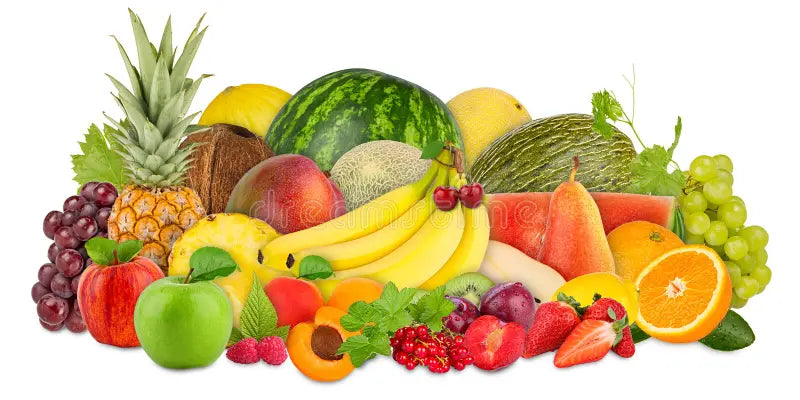
What is the Food of Health?
Share
Introduction to Food and Health
Food is more than just fuel; it's the foundation of our health. The phrase "You are what you eat" rings true when we consider how closely our diet is linked to our well-being. From the energy that powers our daily activities to the nutrients that build and repair our body, understanding the role of food in health is the first step towards a healthier life.
Understanding Nutrition
Macronutrients
Proteins, carbohydrates, and fats are the big players in the nutrition game. They're essential for energy, growth, and body functions. Proteins are the building blocks of our muscles and organs. Carbohydrates are our main energy source, while fats provide long-term energy storage and assist in nutrient absorption.
Micronutrients
Vitamins and minerals, though needed in smaller amounts, are critical for disease prevention and the proper functioning of our bodies. They're involved in bone health, vision, blood clotting, and more. Without them, our bodies can't perform optimally.
The Balanced Diet
Components of a Balanced Diet
A balanced diet includes a variety of foods from all food groups: fruits, vegetables, grains, protein sources, and dairy or its alternatives. Eating a rainbow of foods ensures we get a wide range of nutrients.
Planning Your Meals
Planning is key to a balanced diet. Incorporating a mix of food groups in each meal can help meet nutritional needs. Preparing meals ahead can save time and reduce the temptation to opt for less healthy options.
Superfoods
What Are Superfoods?
Superfoods are nutrient powerhouses that pack large doses of antioxidants, vitamins, and minerals. Examples include berries, leafy greens, and fatty fish. They're called "super" for their supposed ability to fend off disease and help you live longer.
Benefits of Superfoods
Including superfoods in your diet can enhance health, providing benefits like improved energy, reduced disease risk, and better brain function.
Understanding Dietary Restrictions
Common Dietary Restrictions
Dietary restrictions can be due to allergies, intolerances, ethical beliefs, or health conditions like diabetes. It's important to understand these to adapt your diet accordingly.
Adapting to Dietary Restrictions
With careful planning, you can still enjoy a balanced diet within any restrictions. Seeking alternatives and being mindful of nutritional needs are key strategies.
The Role of Hydration
Importance of Water
Water is essential for life. It aids in digestion, absorption of nutrients, and the elimination of waste. Adequate hydration is crucial for overall health.
Tips for Staying Hydrated
Carrying a water bottle and drinking regularly throughout the day can help ensure you meet your hydration needs. Incorporating water-rich foods like fruits and vegetables also contributes to hydration.
Food and Mental Health
Connection Between Diet and Mental Health
What we eat can affect our brain's structure and function, thus influencing our mood and mental health. A nutritious diet supports brain health, while a poor diet can be detrimental.
Foods That Boost Mental Health
Foods rich in omega-3 fatty acids, antioxidants, and vitamins can enhance mental well-being. Examples include fatty fish, nuts, and whole grains.
Sustainable Eating
What is Sustainable Eating?
Sustainable eating means choosing foods that are healthful to our body and the environment. It involves eating more plant-based foods, reducing waste, and choosing local and seasonal produce.
Benefits of Sustainable Eating
Sustainable eating not only improves your health but also reduces your carbon footprint and supports local economies. It's a win-win for you and the planet.
Conclusion
In conclusion, the food of health is diverse, nutritious, and balanced. It supports not only our physical but also our mental well-being. By making informed choices about what we eat, we can enjoy a healthier, more vibrant life. Let's commit to eating better, not just for our own health, but for the health of our planet too.
FAQs
-
What are some easy ways to include more superfoods in my diet?
- Add berries to your breakfast, snack on nuts, or include leafy greens in your meals.
-
How can I stay hydrated if I don't like drinking water?
- Try flavored water, herbal teas, or include more fruits and vegetables in your diet.
-
Can a balanced diet improve my mood?
- Yes, a diet rich in nutrients supports brain function and can improve mood and mental health.
-
What are some tips for eating sustainably on a budget?
- Choose seasonal produce, reduce meat consumption, and buy in bulk when possible.
-
How can I ensure I'm getting a balanced diet with dietary restrictions?
- Focus on what you can eat, seek out nutrient-dense alternatives, and consider consulting a dietitian.